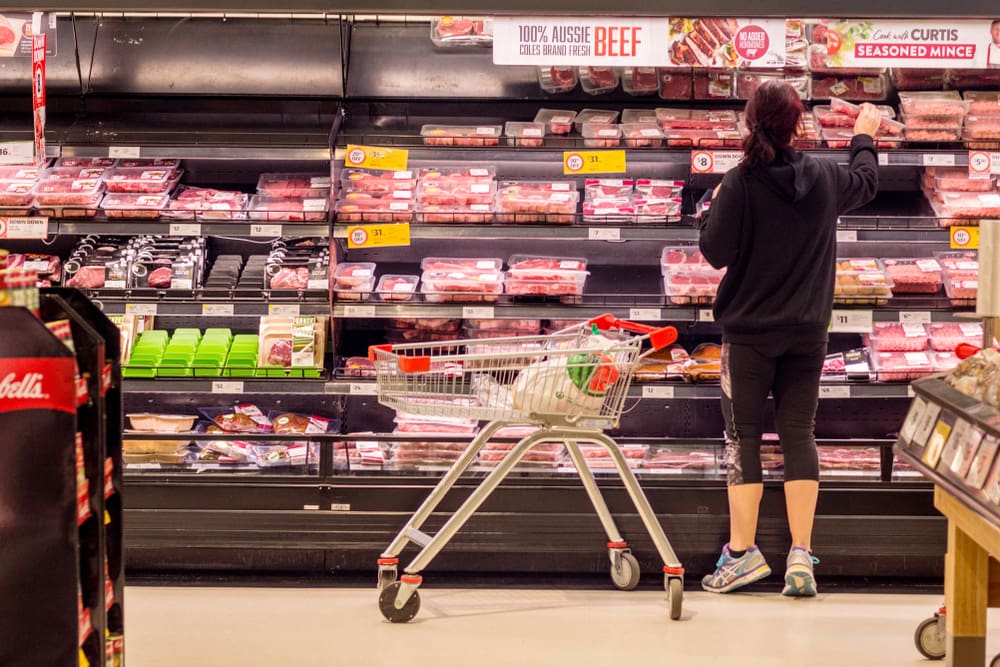AUSTRALIA’S consumer watchdog says the red meat supply chain will be one of 14 that will be subject to a detailed analysis in the next five months of its inquiry into the practices of Australian supermarkets.
 The Australian Competition and Consumer Commission handed down its interim report today, outlining what it has heard in the first half of its year-long inquiry. Earlier this week, the ACCC announced it was taking Woolworths and Coles to court over alleged misleading special programs.
The Australian Competition and Consumer Commission handed down its interim report today, outlining what it has heard in the first half of its year-long inquiry. Earlier this week, the ACCC announced it was taking Woolworths and Coles to court over alleged misleading special programs.
Treasurer Jim Chalmers directed the commission to look into supermarket pricing and competition in February this year after widespread discussion about Coles and Woolworths’ role in the current high inflation cycle.
The ACCC says it has not reached any concluded views yet and will now look into 14 different commodities – including chicken, pork, bananas, apples, strawberries, cucumbers, potatoes, eggs, milk, cereal, biscuits, pet food and dishwashing tablets.
“Oligopolistic market structures can limit incentives to compete vigorously on price. We see Woolworths and Coles providing a broadly similar experience to customers through largely undifferentiated product ranges, pricing at similar levels and similar non-price offerings including loyalty programs,” ACCC deputy chair Mick Keogh said.
“So far during this inquiry we have heard in detail about many aspects of Australia’s grocery markets. Increasing grocery prices are one key contributor to the rising cost of living and are front of mind for consumers, given how often people shop at supermarkets and how much of their incomes people spend there.”
In its report, the ACCC noted that the red meat industry was not as reliant on supermarket as fruit and vegetable growers.
“Meat suppliers appear to have stronger export market opportunities compared to fresh producers, which could result in these suppliers being comparatively less reliant on supermarkets to distribute their goods,” the report said.
ACCC to examine barriers to entry for new supermarkets
The ACCC observes that ALDI has taken more than 20 years to reach a 9pc share of national supermarket retail sales. This demonstrates the level of difficulty entering and expanding in supermarket retailing, and the significant investment, time and differentiated offering required to expand.
“Our preliminary view is that planning and zoning laws may slow a supermarket retailer’s ability to develop new stores by creating additional costs or adding significant delays,” Mr Keogh said.
“We have received submissions raising concerns about alleged ‘land banking’ but have not yet formed any views on this issue.”
The ACCC says information provided by Coles and Woolworths suggests land may be held for lengthy periods of time for various reasons, including the need to obtain rezoning and development or planning approvals, construction delays, site cleanups, and population growth being slower than expected.
Supermarkets on notice
New South Wales Farmers says the report has put the two big supermarkets on notice. Principal economist Samuel Miller said tough penalties and expanded powers for the competition watchdog were vital to bring Australia’s grocery giants to account.
“A mandatory, enforceable Food and Grocery Code is a positive step, and will go some of the way to address this culture of unconscionable behaviour we’re seeing within Australian supermarkets, but it’s not the end of the road for competition reform,” Mr Miller said.
“These superpowers are not only reaping huge profits, but they are doing so at farmers and families’ expense.
“We need solutions to increase price transparency, an economy-wide prohibition on unfair trading practices and new divestiture powers to bust apart duopolies in cases of extreme bad behaviour, if we want to sort these superpowers for once and for all.
“We know exactly how our supermarkets have been treating us, and we can’t let them keep pushing us up against the wall – or else more and more Aussie families simply won’t be able to afford to put fresh food on the table every day.”

Red meat is one of 14 on the list. Samuel Miller is correct. Until we have price transparency and signals, the problems will continue. Australia’s lack of forward markets — and the the corresponding education — resigns farmers to be price-takers not price-makers when they take the majority of the risks.
Red meat left off the list for an Enquiry?
That’s the Labor government through and through….
According to MLA (federal Ag minister) red meat exports broke records last year and achieved a 3% increase in value.
A decrease in farm gate expenses of 23% was achieved by processors.
The processors need to be questioned. We only consume 23% of red meat production in Australia.
Cole’s and Woolies can rip into the 23% domestic market all they want!
The difference between farm gate prices and export prices of 77% of our production needs to be looked into.
Export markets like the live sheep need to be strengthened and grown…. And nurtured…. The Labor government just bastardised all agriculture because they have absolutely no idea who farmers are and how they do it.
Vote them out. Be very careful choosing your candidate….. they might well be giving their preferences to Labor.
Helen Haines wants the live sheep stopped.